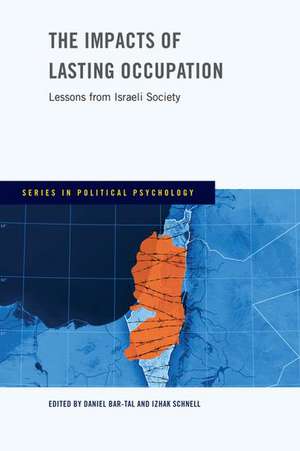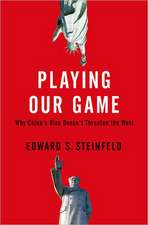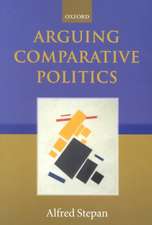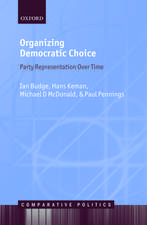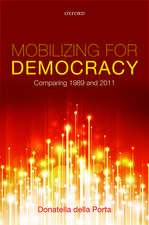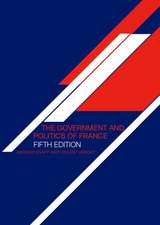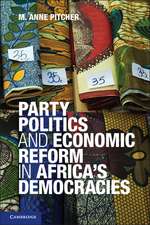The Impacts of Lasting Occupation: Series in Political Psychology
Editat de Daniel Bar-Tal, Izhak Schnellen Limba Engleză Paperback – 15 ian 2015
Din seria Series in Political Psychology
- 28%
 Preț: 492.69 lei
Preț: 492.69 lei - 22%
 Preț: 452.32 lei
Preț: 452.32 lei - 27%
 Preț: 339.78 lei
Preț: 339.78 lei - 27%
 Preț: 395.34 lei
Preț: 395.34 lei - 34%
 Preț: 520.19 lei
Preț: 520.19 lei - 31%
 Preț: 428.94 lei
Preț: 428.94 lei - 31%
 Preț: 384.83 lei
Preț: 384.83 lei - 33%
 Preț: 558.53 lei
Preț: 558.53 lei - 34%
 Preț: 947.50 lei
Preț: 947.50 lei - 31%
 Preț: 348.36 lei
Preț: 348.36 lei - 30%
 Preț: 492.00 lei
Preț: 492.00 lei - 24%
 Preț: 253.16 lei
Preț: 253.16 lei - 34%
 Preț: 576.77 lei
Preț: 576.77 lei - 30%
 Preț: 520.86 lei
Preț: 520.86 lei - 18%
 Preț: 297.76 lei
Preț: 297.76 lei - 21%
 Preț: 538.20 lei
Preț: 538.20 lei - 22%
 Preț: 330.17 lei
Preț: 330.17 lei - 27%
 Preț: 402.18 lei
Preț: 402.18 lei
Preț: 340.89 lei
Preț vechi: 488.41 lei
-30% Nou
Puncte Express: 511
Preț estimativ în valută:
65.23€ • 68.29$ • 53.97£
65.23€ • 68.29$ • 53.97£
Carte tipărită la comandă
Livrare economică 26 martie-01 aprilie
Preluare comenzi: 021 569.72.76
Specificații
ISBN-13: 9780190227487
ISBN-10: 0190227486
Pagini: 592
Dimensiuni: 234 x 155 x 33 mm
Greutate: 0.84 kg
Editura: Oxford University Press
Colecția OUP USA
Seria Series in Political Psychology
Locul publicării:New York, United States
ISBN-10: 0190227486
Pagini: 592
Dimensiuni: 234 x 155 x 33 mm
Greutate: 0.84 kg
Editura: Oxford University Press
Colecția OUP USA
Seria Series in Political Psychology
Locul publicării:New York, United States
Recenzii
The text is often highly technical, but even if the lay reader finds some passages a bit challenging, those passages reward the reader with detailed information and in-depth analysis that are mostly missing from media coverage. Indeed, it is not too much to say that anyone who holds an opinion on the occupation, one way or the other, ought to read The Impacts of Lasting Occupation, to test his or her own opinions.
This is an ambitious assessment of the detrimental effects on Israel of its 45-year occupation of Palestinian territories. In his foreword, Michael Walzer appropriately calls the book's 24 contributors 'enemies of the occupation' for their harshly critical analysis of the blowback of Israeli rule on all aspects of the country's public life. The contributors make a strong case that ending the occupation is in Israel's self-interest. This profoundly thoughtful book is must reading for scholars, politicians, diplomats, and readers seeking peace. Summing Up: Highly recommended. All readership levels.
It should have become obvious that we are not dealing here with a pro-Palestinian or for that matter anti-Israeli publication, but with a strictly academic yet fully committed attempt at opening the eyes of the Israeli citizens to the negative implications of the lasting occupation for themselves. We may argue that this contradiction between ethnic nationalism, religious fundamentalism and democratic secular humanism had by that time already been exposed as a result of the Nakba, the dispossession of hundreds of thousands of Palestinians between 1947 and 1949, but this does not in the least diminish the pertinence nor the urgency of the present compelling study.
This recently published book is part of the Series in Political Psychology. The multi-dimensional study presents an original conceptual framework that focuses on the impact of protracted occupation on the occupying society. It provides a systematic and comprehensive analysis of the influence of ongoing occupation of the Palestinian Territories on political, social, economic, cultural and psychological aspects of life of the Israelis. Leading Israeli scholars address the fundamentals of occupation as well as its political, societal and cultural effects. This innovative study presents the extent of social and political deterioration of the occupying society on Israel society.
Nevertheless, the book's innovation is not in its answer to the question, How does the occupation affect society? The answer may be summarized in two words that have long since become a cliché: Occupation corrupts. Instead, the uniqueness and importance of the collection lies in the broad, extensive description of the "how ": how corruption takes place and how it affects almost every aspect of the life and identity of the occupying society, to the extent of transforming it into a new Israeli identity. This important book, as well as the political reality reflected in Jerusalem's election campaign, should serve as an additional warning sign for those Israelis who, like most of the experts who contributed to the book, want to preserve Israel's democratic and moral identity along with its Jewish and liberal values.
This is an ambitious assessment of the detrimental effects on Israel of its 45-year occupation of Palestinian territories. In his foreword, Michael Walzer appropriately calls the book's 24 contributors 'enemies of the occupation' for their harshly critical analysis of the blowback of Israeli rule on all aspects of the country's public life. The contributors make a strong case that ending the occupation is in Israel's self-interest. This profoundly thoughtful book is must reading for scholars, politicians, diplomats, and readers seeking peace. Summing Up: Highly recommended. All readership levels.
It should have become obvious that we are not dealing here with a pro-Palestinian or for that matter anti-Israeli publication, but with a strictly academic yet fully committed attempt at opening the eyes of the Israeli citizens to the negative implications of the lasting occupation for themselves. We may argue that this contradiction between ethnic nationalism, religious fundamentalism and democratic secular humanism had by that time already been exposed as a result of the Nakba, the dispossession of hundreds of thousands of Palestinians between 1947 and 1949, but this does not in the least diminish the pertinence nor the urgency of the present compelling study.
This recently published book is part of the Series in Political Psychology. The multi-dimensional study presents an original conceptual framework that focuses on the impact of protracted occupation on the occupying society. It provides a systematic and comprehensive analysis of the influence of ongoing occupation of the Palestinian Territories on political, social, economic, cultural and psychological aspects of life of the Israelis. Leading Israeli scholars address the fundamentals of occupation as well as its political, societal and cultural effects. This innovative study presents the extent of social and political deterioration of the occupying society on Israel society.
Nevertheless, the book's innovation is not in its answer to the question, How does the occupation affect society? The answer may be summarized in two words that have long since become a cliché: Occupation corrupts. Instead, the uniqueness and importance of the collection lies in the broad, extensive description of the "how ": how corruption takes place and how it affects almost every aspect of the life and identity of the occupying society, to the extent of transforming it into a new Israeli identity. This important book, as well as the political reality reflected in Jerusalem's election campaign, should serve as an additional warning sign for those Israelis who, like most of the experts who contributed to the book, want to preserve Israel's democratic and moral identity along with its Jewish and liberal values.
Notă biografică
Daniel Bar-Tal is Branco Weiss Professor of Research in Child Development and Education in the School of Education at Tel Aviv University. His research in political and social psychology focuses on the socio-psychological foundations of intractable conflicts and peacemaking. Bar-Tal has published twenty books and over two hundred book chapters and articles that have appeared in major social and political psychology journals. He has served as President of the International Society of Political Psychology (ISPP) and received various prizes for his work, including ISPP's Harold Lasswell Award, given for distinguished scientific contributions in the field of political psychology, and ISPP's Nevitt Sanford Award, recognizing the practical application of political psychological principles and the creation of knowledge used by practitioners to make a positive difference in the way in which politics is carried out.Izhak Schnell is Professor in the Department of Geography and Human Environment at Tel Aviv University. His work focuses on understanding the transitions caused by Arab urbanization, as well as Arab industrial entrepreneurship. Schnell's current research analyzes the structure of social space in a globalized world. He developed novel models to understand socio-spatial lifestyles, segregation, and community in globalizing spaces. He has written eight books, edited eleven books and journal issues, and written over one hundred articles in prestigious journals in geography and science. Schnell has also organized eight major conferences, including the meeting of the International Association of Geographers in 2010.
